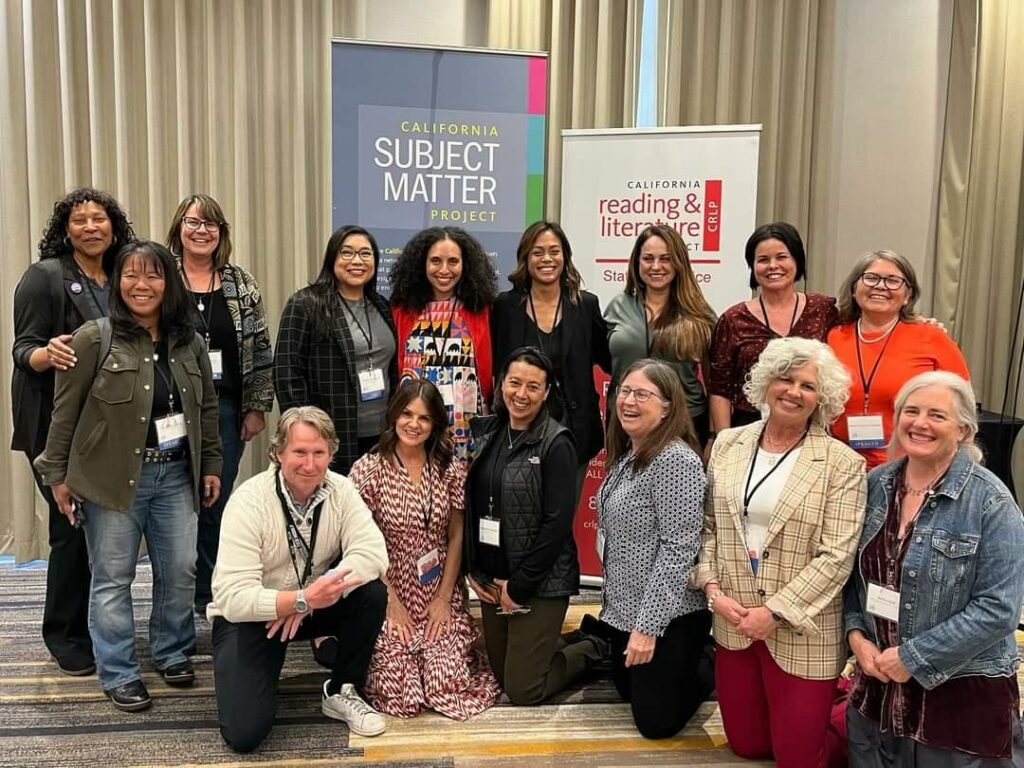
Credit: Courtesy of Tom Courtney
As a guide teacher and induction mentor, I am worried about the future of our profession.
Nearly half of all California teachers quit before their fifth year. Teachers like me know that it isn’t just about throwing in more troops alongside our new recruits. Teacher morale, teacher self-efficacy, and teacher autonomy have never been more worrisome.
The more you listen to new teachers, like I often do, the more you realize: It’s not about what these teachers think of teaching. It’s about the way they feel.
I believe that what teachers need, but seldom get, are opportunities to celebrate victories for ourselves, to feel empowered. As an induction candidate recently told me, “I want to watch my kids leave at the end of the day and think, ‘Wow, I really taught something special today.’”
This is what every teacher I know, the veteran and the new, needs to feel.
So, whenever a new teacher candidate calls me looking for that feeling, I send them to the same place that I go for a recharge: The California Subject Matter Project. The response is always the same: “What’s that, Tom?”
And that worries me a little because at times it seems this amazing resource on teaching is the best-kept secret in education.
I think it’s the perfect time to make it the worst-kept secret.
The California Subject Matter Project is a collection nine initiatives operating out of UC and Cal State campuses up and down the state. Essentially, picture in your mind an organization of experts in all content areas you can think of: art, history, science, math, reading, writing, all housed on a UC or Cal State campus. And the best part is, these offices are found on campuses throughout California.
The purpose of the projects is to create seeds of strong teaching around many disciplines. The reason why it’s such an essential organization is that its impartial, filled with very smart academics, and has no other agenda but to connect with willing participating districts, schools and teachers.
Each location, led by a regional director, creates and connects empowering research-based, content-focused outreach programs that teachers, frankly, don’t see enough of at their school sites. If ever.
Removed from the politics surrounding so many education issues, the California Subject Matter Project is focused on the actual learning and teaching. Under its umbrella, smaller content-specific projects (like art, math, global education) offer rich and engaging programs directed to exactly the teachers who need them most. And they do it in a way that is pro-equity and pro-access for marginalized student populations, like many of my students. They also have a lot of fun.
For example, I am a proud teacher leader with one of the Subject Matter’s projects, the California Reading and Literacy Project. I now join my colleagues to learn, grow, reflect, and share research-driven approaches to reading. Our project hosts virtual book studies, conferences and invitationals, and runs professional development that always exceeds my expectations.
When I attend any of these events, I feel empowered, and I know I am in the company of teachers who feel the same way. Through just this initiative, I have learned things I feel I should have gotten a long time ago — like how to incorporate phonics in small dynamic groups at middle school, collect a lifetime supply of great literature for small groups, and the value of having my students write authentically.
But the California Reading and Literacy Project is just one of many projects you can connect with. For instance, I am also a member of California Science Project, California History Project, and the California Global Education Project. Each one of these spaces is, as my induction candidate Kelly Gonzales calls them, “a breath of fresh air,” and each is a place where I can be exposed to dozens of things that I wouldn’t be privy to at my school site.
I also have gained many friends from many different work environments. I can now see, on those tough days, that I am not alone, and know where to go to get real, authentic help as a teacher and a person of conscience. These friendships have helped me better understand what I need to advocate for in regard to my own students, and that empowers me too. It gives me a sense of autonomy. It gives me a sense of authentic purpose.
In the California Subject Matter Project spaces, I know I am around academics and professionals seeking to better education, not better their results on a math or reading test alone. And in many ways, it’s what I had always been needing, but didn’t have, until I found them.
How to join and tell them Tom sent you
If you can use a little recharge in your teaching, or if you need a massive one, I’d like to strongly encourage you to reach out to one of the subject matter projects too. Choose an area in which you teach and are passionate about. To find contact information for the region nearest you, look here.
Teach in a rural area? Not to worry. Many subject matter programs are also available virtually, so you may be surprised how much amazing professional development, sometimes with a stipend, is available over Zoom.
And you may just be surprised at how much you, like I still do, love teaching again.
•••
Thomas Courtney is a sixth-grade humanities and English language arts teacher at Millennial Tech Middle School in southeast San Diego.
The opinions in this commentary are those of the author. If you would like to submit a commentary, please review our guidelines and contact us.


